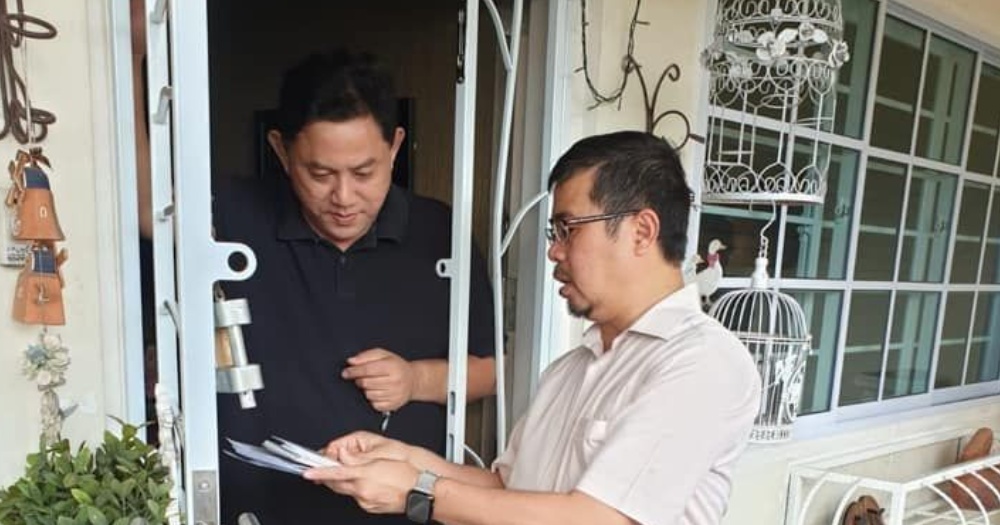Singapore must find ways to narrow the income gap for essential service workers, and change how such workers are treated, says Member of Parliament (MP) Zainal Sapari on Thursday (June 4).
Zainal, who is also the Assistant Secretary General of NTUC, has long championed the rights of lower-income workers who carry out essential services, like cleaners and security guards.
In his latest Parliamentary speech on Thursday in the Fortitude Budget debate, he advocated that Singapore changes how certain occupations are classified, in order to reflect the importance of these workers, and attract younger Singaporeans to see them as viable careers.
Workers are often not paid based on how useful their work is
According to Zainal, the current Covid-19 crisis has forced many to rethink the value that our society has placed on essential service workers.
He pointed out that the services provided by these workers are useful and necessary, and that the impact will be felt if the work is not done.
These workers, however, are often not paid in relation to how important their work is.
"Unfortunately, in many societies, the more useful the work is, the less they pay you," he said.
Fortunately, the Covid-19 outbreak has caused some to change their attitude and behaviour, said Zainal, and many more people have become more gracious, generous and grateful for the work of Singapore's essential service workers.
Nevertheless, he said that it is important for Singapore to find ways to narrow the income gap, and ensure their average wage growth continue to be higher than the median.
Essential service workers need to be paid better
Zainal said that most of the companies in the outsourced industries, where the Progressive Wage Model (PWM) is made mandatory, are characterised by an older workforce, limited use of technology, relatively low productivity and heavy reliance on foreign manpower.
Examples of such occupations include cleaners and security officers.
Zainal pointed out that these workers' salaries hover at the bottom fifth percentile of the resident workforce in terms of gross monthly pay, and said that this situation "cannot persist in post Covid-19".
"As a society, if we truly value the work of our essential service workers, then it is time for all stakeholders to be bold and embrace change in the new normal," said Zainal.
He raised the example of security officers, who are not given any PWM bonus, while cleaners and landscape workers are given two weeks of PWM bonus.
Zainal said that by giving all these workers an annual bonus of one month, their percentage of wage increment will go up by 8 per cent.
He then called upon the tripartite committees overseeing these essential services to work together to enhance the skills and wage ladders of these workers, in order for them to remain relevant and receive due recognition for the importance of their work.
Essential workers should be classified as specialists
Zainal also said that it is important for Singapore to change how these occupations are classified.
He said that the Covid-19 pandemic has demonstrated the importance of these essential service workers, and that they should not be regarded as low-wage workers.
"With higher skills and greater productivity, these environmental services workers, security officers and landscape specialists should be regarded as specialists in their own respective areas and would not be seen or regarded as low-wage workers", said Zainal.
He argues that this change will allow younger Singaporeans to see these occupations as viable careers.
"Attracting a younger or more skilful workforce has always been a key outcome desired under PWM and to achieve this, we must change how we do things by leveraging technology and digitalisation to support higher productivity and sustain higher wages to attract younger Singaporeans to be essential service workers."
Migrant workers should be more widely accepted in Singapore
Singaporeans must also change how they regard migrant workers, and welcome them into the community, as they are the ones that keep Singapore running, said Zainal.
He noted that some of these migrant workers will be, or are currently, housed in vacated school sites to ensure their own safety and welfare as they continue working during the Covid-19 crisis.
He said he is heartened that many of the residents in his constituency have demonstrated understanding of the need for this arrangement, and expressed his hope that Singaporeans will not resist their presence after the crisis is over.
"But what if these temporary dormitories must remain for a much longer period? Do we then adopt the perverse attitude of resisting them again, because we don't want them in our backyard? I hope the new normal for our foreign friends will see them being accepted as a fellow human being who has the right to enjoy the surrounding that they helped to maintain and build.
I see the changes needed for the new normal will complement our efforts to create better jobs, better wages and better welfare for our workers, regardless of colour, age, nationality, and sector."
He also expressed his wish for Singaporeans to make use of this crisis to become a stronger society overall.
"If the S$100 billion we have spent in this crisis does not lead us to a future where we can be more progressive, more equitable and more enlightened, then indeed it would be a tragedy if the only thing we did was trying to survive rather than coming out stronger as a society."
Top image from Zainal Sapari/FB.
If you like what you read, follow us on Facebook, Instagram, Twitter and Telegram to get the latest updates.
